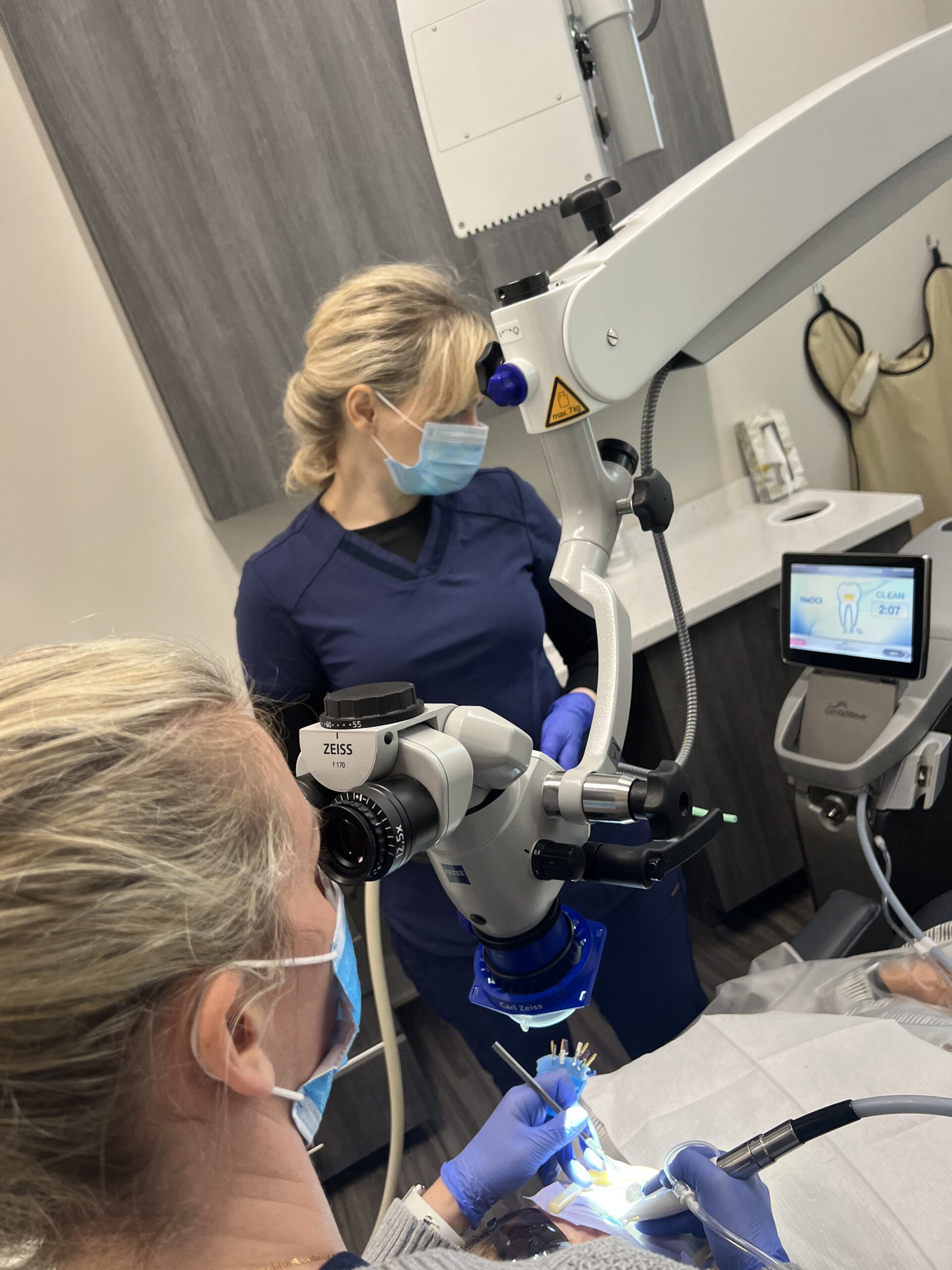Treatment for Traumatic Tooth Injury
Treatment for traumatic injuries depends on the age of the person affected. Adults may need root canal therapy to treat a tooth. Children have different dental structures than adults and require specific pediatric endodontic treatment near Chicago.
Treatment for Adults with Traumatic Tooth Injury
Treatment for adults with traumatic tooth injury stems from the damage done to permanent teeth. For dislodged teeth, we will attempt to reposition the tooth and hold it in its correct place. You must return for a follow-up visit, during which the doctor will evaluate the health of the tooth and determine if you need root canal treatment to correct damage to the tooth’s pulp.
For knocked-out teeth, we may need to perform a root canal to fix pulp damage and replace the tooth in the socket. How long you waited to get treatment, how you stored the tooth in transit, and if the tooth remained intact factor into the type of treatment our endodontists can provide to try to save the tooth.
Pediatric Treatment of Traumatic Tooth Injuries
Children’s teeth may still have growing pulp and roots that require distinctive treatment from adults if they injure a tooth. To get the best care for a child with a tooth injury, you should go to a pediatric endodontist who has experience working with kids and saving their teeth.
Our pediatric endodontists will try to save a child’s injured tooth by using either apexogenesis or apexification, depending on the development of the pulp in the tooth and the level of damage.
Apexogenesis encourages continued growth of the pulp and roots in the tooth. Older adult teeth that have better-developed roots respond best to apexogenesis treatment.
However, if either the root or pulp has sustained severe damage, the endodontist may perform apexification. This process cleans the damaged pulp from the tooth and closes the root tip of the tooth. Since the development of the root and tooth walls stops after apexification, you need to ensure that your child takes care to avoid future damage to this tooth. The treated tooth will not have the same strength as its fully developed neighbors.
The Role of Endodontists in Dental Emergencies
When dental emergencies strike, we at Southwest Endodontics are the professionals you want by your side. As endodontists, we specialize in diagnosing and treating tooth pain and injuries, making us perfectly suited to handle urgent dental issues. Let’s break down how we can help you during those stressful moments.
Evaluating Injuries
The first thing we do when you walk into our office is evaluate your injury. We know that dental emergencies can be scary, so we jump right in to assess what’s going on. Using advanced imaging technology like digital X-rays or 3D scans, we get a clear view of the inside of your tooth. This helps us identify any fractures, decay, or damage to the pulp. With this detailed picture, we can come up with a plan that addresses the specific issues affecting your tooth.
Performing Complex Procedures
One of the most common procedures we perform is the root canal, and we’re experts at it. If your tooth has suffered significant damage or infection, we’re trained to handle this intricate process with care. We’ll remove the infected pulp, clean out the root canals, and seal everything up to prevent any further problems. Our experience is vital during emergencies; it can mean the difference between saving a tooth or losing it altogether.
Providing Specialized Care
We’re also great at treating patients of all ages. Whether you’re an adult facing a traumatic injury or a child who’s knocked out a tooth, we know how to provide the right care for your specific needs. For kids, we often use techniques and tools designed just for younger patients to make the experience as comfortable as possible.
Easing Anxiety During Emergencies
We understand that dental emergencies can be stressful, which is why we strive to make you feel at ease. You can trust that you’re in the hands of skilled professionals. We don’t just have the technical skills to fix your dental issues; we also have the compassion to support you during these tough times. We take the time to explain what’s happening and what you can expect throughout the treatment process.
Trust Us at Southwest Endodontics to Help Whether You or Your Child Suffers from Traumatic Tooth Injury
Time is essential in saving an injured tooth. At Southwest Endodontics, we provide immediate care for traumatic tooth injury Orland Park IL and Geneva, IL. Ideally, try to reach us within an hour, especially if you have an avulsed tooth. Call our Geneva or Orland Park endodontic locations to get treatment to save your injured tooth with expert endodontic care.
After treatment, we won’t leave you hanging. We provide clear instructions on how to care for your tooth during recovery. Whether it’s managing pain, eating restrictions, or when to schedule follow-up appointments, we’ll make sure you feel confident moving forward. Remember, your oral health is a team effort, and we’re here to support you every step of the way.


